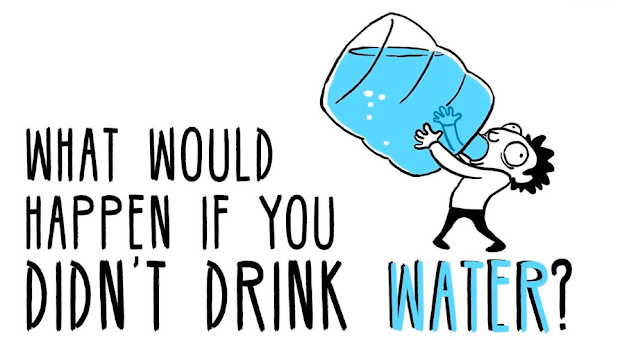Water is present almost everywhere, including the cells inside of our own bodies and the ice caps that cover the earth. The average person is between 55 and 60% water, depending on things like region, obesity index, age and sex. Human newborns are even more moist than usual. They swim similarly to fish because they are 75% water. By the time they turn one, however, their water content has decreased to 65%.
What function does water serve in our bodies and how much water must we consume daily to maintain good health?
Our bodies’ water content helps lubricate and cushion joints, control body temperature, hydrate the brain and spinal cord. Not just in our blood, water is present. The brain and heart of an adult contain about 75 percent water. That is roughly comparable to the moisture content of a banana. At 83%, the lung is more like an apple. Even the supposedly dry human bones contain 31% water. If water surrounds us and we are fundamentally formed of it.
Why do we still require so much alcohol?
We lose two to three litres daily through sweat, bowel movements, pee, and even just breathing. Even though these processes are vital to our existence, we still need to make up for the fluid loss. To prevent dehydration or over-hydration, both of which can have disastrous effects on general health, it is imperative to maintain a balanced water level. Sensory receptors in the brain’s hypothalamus trigger the production of antidiuretic hormone when low water levels are first detected. Aquaporins, specialised channels that let blood absorb and retain more water, are produced as it reaches the kidneys, resulting in concentrated, black urine. Increased dehydration can result in noticeable reductions in blood pressure, energy, mood, skin moisture, and cognitive function.
A brain that is dehydrated works harder to achieve the same tasks as one that is adequately hydrated, and it even experiences temporary shrinkage as a result of dehydration. Overconsumption of water over a short period of time frequently results in hyponatremia, also known as over-hydration. Athletes frequently suffer from over-hydration as a result of difficulties controlling water levels under extremely demanding physical situations. The release of antidiuretic hormone into the circulation is slowed or even stopped in the over-hydrated brain, in contrast to how the dehydrated brain increases its production. Cells enlarge as a result of the body’s sodium electrolytes becoming dilute. In severe situations, the kidneys are unable to handle the amounts of diluted urine that ensue. The next stage is water intoxication, which may result in headache, nausea, and, in rare cases, convulsions or death.
However, that is a rather extreme circumstance. For those of us who are lucky enough to have access to clean drinking water on a daily basis, maintaining a properly hydrated system is simple to manage. The accepted knowledge for a very long time was that we should consume eight glasses each day. Since then, that estimation has been improved. The amount of water we need to consume now generally relies on our weight and environment.
Men should drink 2.5–3.7 litres of water per day, and women should drink roughly 2–2.7 litres per day. This range can change depending on our health, activity level, age, and level of heat stress. Although water is the healthiest hydrator, other drinks, including those containing caffeine like coffee or tea, can also help you replenish fluids. And nearly a fifth of the water we consume each day is found in meals. Because they contain more than 90% water, fruits and vegetables like strawberries, cucumbers and even broccoli can be used to increase fluid consumption while still supplying important minerals and fibre. A variety of long-term advantages to drinking sensibly may also exist. According to studies, drinking enough water can help control diabetes, cut the risk of stroke and possibly even lower the risk of some cancers. Whatever the situation, getting the appropriate amount of fluids will have a huge impact on how you feel, think and behave every day.
Related Searches:
what would happen if you didn’t drink water for 3 days, what happens if you don’t drink water for a week, 10 signs you don’t drink enough water, what would happen if you didn’t drink, water transcript, i never drink water, how am i alive, what happens if you don’t drink water for a month, can’t drink water disease, what happens if you don’t drink water for a day.
List of Tags:
overhydration, dehydration, how much water do you need to drink, water,fresh water, drinking water, drinking water, drinking water before bed, drinking water benefits, drinking water berlin, drinking water filter, drinking water fountain near me, drinking water frankfurt airport, drinking water hamburg, drinking water in germany, drinking water near me.
